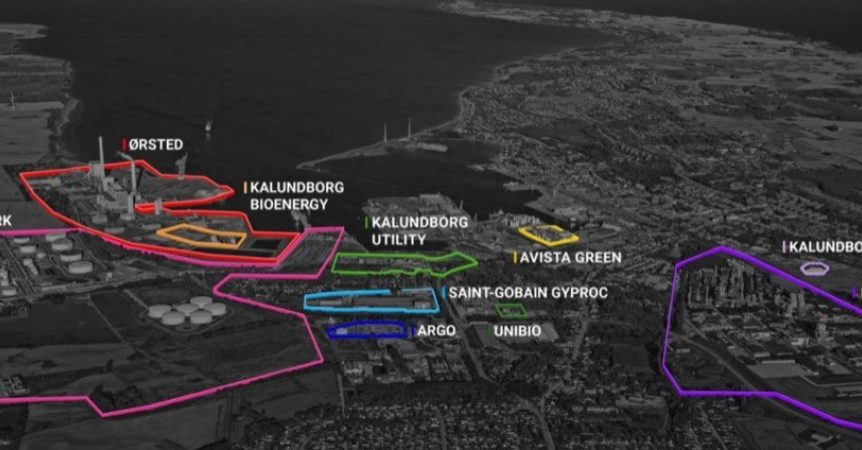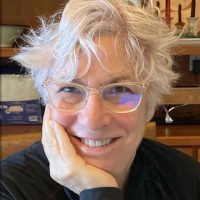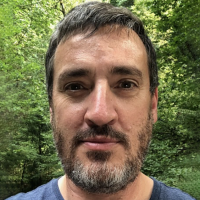Industrial Symbiosis in Kalundborg, Denmark
Lessons from Denmark, Action at Home
Apr 19, 2021
For over a dozen years, i-SUSTAIN has been a partner of Scan Design Foundation. Through our Civic & Technology grants program, the Foundation has funded hundreds of Northwest politicians, executive city staff, and other public sector participants on study tours to Denmark, resulting in many successful sustainability outcomes at the local level. This special co-authored blog provides an overview of delegations who went to study the Danish system of Industrial Symbiosis and how it inspired change here in Washington.
Patricia Chase, i-SUSTAIN
Ted Sturdevant, Center for Sustainable Infrastructure
Since its inception in 2004, i-SUSTAIN has arranged study delegations to Denmark to catalyze disparate interests into a common vision of what is possible and beneficial. Our role has been focused exclusively on bringing influential public, private and non-profit sector professionals together to experience, for themselves, best practices in sustainable development. Non-profits, such as the Center for Sustainable Infrastructure, play a critical role in taking the lessons forward, post-delegation, to facilitate their implementation in the communities they work with. Industrial Symbiosis is just one example of how Scan Design Foundation’s investment in this unique program is helping Washington State and its people, cities, farmlands and forests to benefit from Denmark’s considerable expertise.
In 2016, i-SUSTAIN contacted CSI with an interesting request based on our interest in broadening the scope of our impact from individual cities to Washington State. We were convinced that urban and rural communities would benefit by experiencing how Denmark has developed climate-related strategies that could provide economic development to rural communities. We collaborated to identify Republican state legislators, often from more rural areas, who would be receptive to joining an equal number of their Democratic colleagues in Denmark, to experience for themselves, the country’s propensity for finding common ground to solve some of their own and the planet’s most intractable problems. CSI was instrumental in identifying and contacting these legislators and the first truly bi-partisan Washington State climate and energy delegation to Denmark was born.
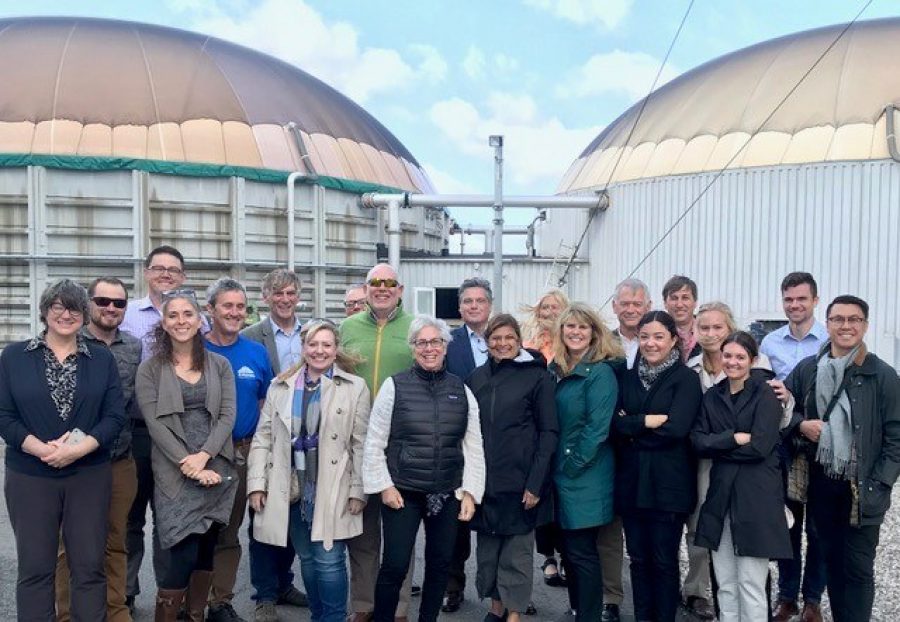
One of the most extraordinary lessons delegates were able to take back with them was the smaller role that politics and ideology play, compared to the US, in their approach to sustainability. Because energy independence is essential to their success as a nation, the Danes have maintained a consistent drive over many decades to become more self-reliant, regardless of what party is in power, with disagreements focused on how – not whether – to best achieve their goals with all sectors of society benefitting. As a result, they have pioneered many practical lessons in sustainability that we in Washington and the US can learn from.
As a way to reduce resource consumption and costs, the Danish concept of “Industrial Symbiosis,” was developed. With Industrial Symbiosis, typically unrelated companies are brought together to co-locate in such a way that waste for one becomes a resource for another. Examples of turning industrial wastes to resources include water, thermal energy, electricity and materials such as potassium. This strategy provides greater economic value, cuts climate and environmental pollution, and reduces demand for limited resources. This win-win approach moves us well beyond the old “economy vs. environment” conversation, offering a new model for economic development that advances prosperity and a healthy planet.
CSI first learned about Industrial Symbiosis through i-SUSTAIN’S 2017 trip to Kalundborg where 11 partners have created the world’s first multi-sector Industrial Symbiosis experiment. Kalundborg Symbiosis - The World's first industrial symbiosis. Like several of the legislators on that trip, CSI participants started asking themselves how this “let’s all win” approach could be implemented in the Pacific Northwest. This began an exciting journey for CSI and Washington State beginning with a series of gatherings of delegation participants, individual meetings in legislators home districts, and public workshops that CSI organized and led.
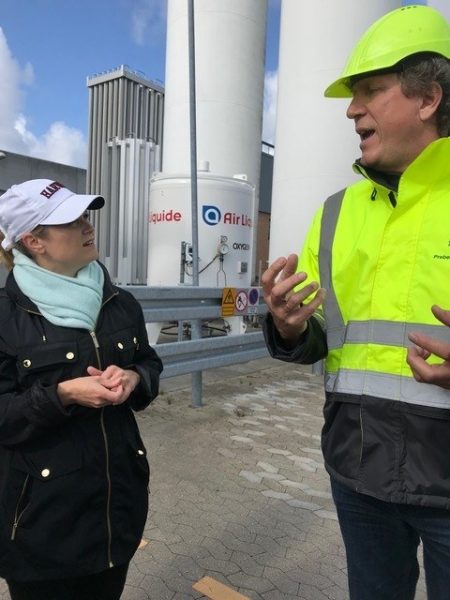
In 2018, with visionary leadership from the Port of Willapa Harbor in the coastal timber town of Raymond, WA and critical support from the Department of Natural Resources (State Lands Commissioner Hilary Franz joined the 2017 trip), CSI helped secure $100,000 from the legislature with support from Denmark alumni Sen. Christine Rolfes, Sen. David Frockt and others to develop an “Energy Innovation District” that would use Industrial Symbiosis principles to generate financial and environmental advantages for economic development enterprises in their struggling community.
In 2019, CSI helped secure further legislative investment, to research Industrial Symbiosis for possible adoption in Washington State. That research led to a bill in 2020, creating the first-ever Industrial Symbiosis program in the US, offering grants and technical assistance to projects around the state. The bill passed the legislature (unanimously), but sadly it was vetoed in the early days of the pandemic, when all new funding was vetoed due to plummeting state revenues. Rep. Beth Doglio, Denmark 2017, was particularly helpful in getting the bill passed and funded.
In 2021, the bill’s prime sponsor, Sen. Sharon Brown (R-Kennewick), who participated in the Denmark delegation in 2017, took another run at it, and her bill, SB 5345, has cleared every hurdle and is again poised for final passage. Bi-partisan co-sponsors of the bill include Denmark alum Senators Rolfes, Das, Hasegawa, Nguyen and Rivers. Meanwhile, CSI is actively supporting a number of NW communities, urban and rural, east and west, from Raymond to Goldendale, from Pasco to Portland and Seattle as they pursue Industrial Symbiosis at home. It is likely that by session’s end in 2021, Washington State will have adopted this Danish concept, with all its economic and environmental promise.
Find out more about Scan Design Foundation's partnership with i-SUSTAIN here.
